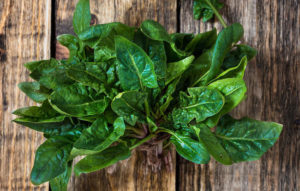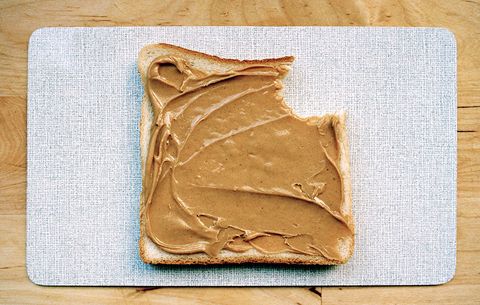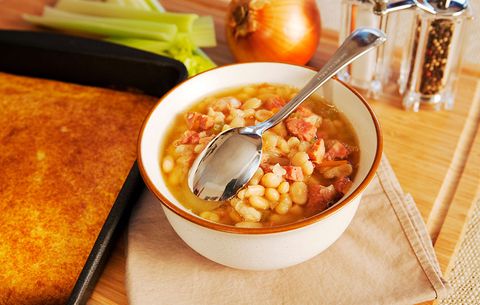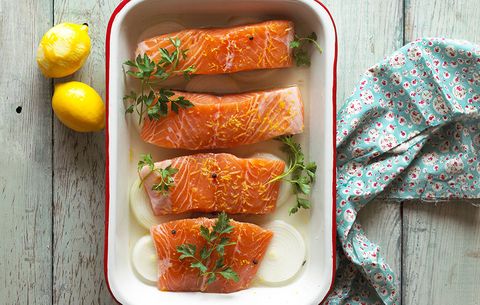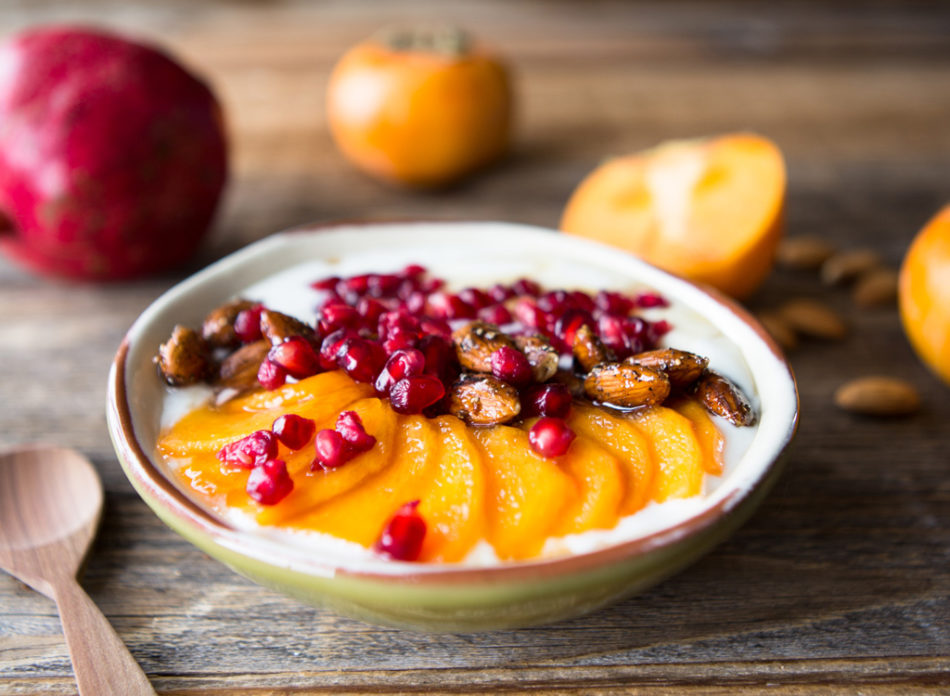Numerous women experience premenstrual syndrome (PMS), characterized by symptoms that emerge before menstruation. These can range from intense cramps and headaches to mood swings, anxiety, and depression. In some cases, these symptoms are so acute that they significantly disrupt daily life. (Discover acupressure techniques to combat PMS symptoms effectively.)
Instead of immediately resorting to medication when PMS symptoms arise, consider diet changes that may help control these discomforts. Scientific studies indicate that incorporating specific foods into your diet can ease various PMS symptoms. Let’s explore six beneficial foods to eat during your menstrual cycle, especially when PMS makes managing your day more challenging.
If maintaining a cheerful mood during your menstrual cycle is challenging, consider adding peanuts and peanut butter to your diet. These nutrient-rich foods are excellent sources of vitamin B6 and magnesium. Magnesium plays a crucial role in mood regulation by influencing serotonin levels, a key neurotransmitter that stabilizes mood and combats depression. Vitamin B6 not only aids in serotonin production but also supports the synthesis of melatonin, a hormone essential for regulating sleep. By increasing your intake of magnesium, calcium, and vitamin B6, you can help alleviate or even prevent menstrual cramps.
Spinach
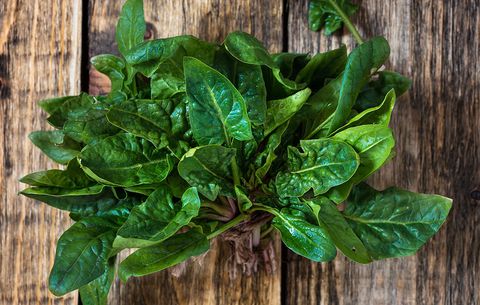
For those battling PMS-related acne, incorporating spinach into your diet can be a game-changer. This nutrient-packed leafy green is abundant in vitamin A, renowned for its acne-combating properties, enhancing skin health, and providing added protection against UV rays. But the benefits of spinach extend beyond skin health. It’s also a rich source of calcium, a key nutrient in mitigating a spectrum of PMS symptoms. Regular consumption of spinach has been associated with a significant reduction in discomforts like headaches, cramps, mood fluctuations, and intense food cravings by up to fifty percent. Moreover, spinach is a versatile ingredient, easily incorporated into various meals, enhancing both the nutritional value and flavor of dishes. [How Spinach Can Help Your Skin]
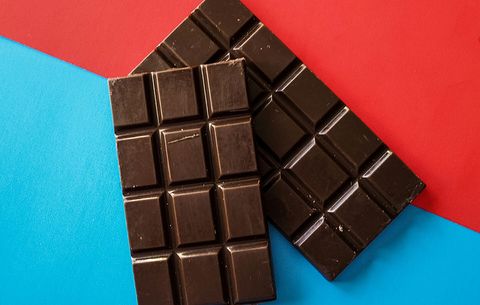
Dark Chocolate
Indulging in dark chocolate before your period can actually be beneficial. Dark chocolate is not just a treat for your taste buds; it’s a rich source of antioxidants, which are essential for enhancing blood circulation and reducing blood pressure. Additionally, its high magnesium content is particularly effective in combating fatigue and irritability, common issues associated with PMS.
The benefits of dark chocolate extend far beyond just these. Magnesium, for instance, plays a crucial role in muscle and nerve function, and can help in managing cramps and physical discomfort. The mood-boosting properties of dark chocolate are also noteworthy. It stimulates the production of endorphins, the body’s natural ‘feel-good’ chemicals, and contains serotonin, a natural mood stabilizer.
Moreover, dark chocolate with a high cocoa content (ideally above 70%) offers more than just temporary relief; it can contribute to overall health with its anti-inflammatory and heart-health benefits. So, when you feel the urge for something sweet as your period approaches, reaching for a piece of dark chocolate can be both a delightful and a health-conscious choice.
Bananas
For many women, cramps can begin as early as two days before their period, marking the onset of PMS. One simple yet effective dietary change to help manage these symptoms is incorporating bananas into your diet. Known for their high potassium content, bananas are excellent for combating cramps. Potassium plays a crucial role in muscle function and
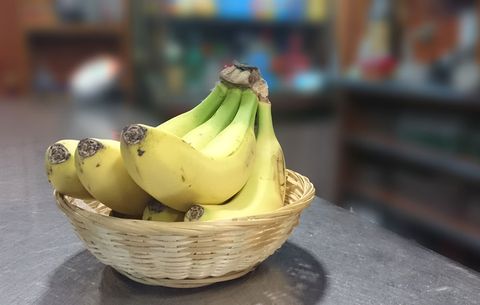
can help reduce the severity of cramping by balancing water retention in the body, a common PMS symptom.
Additionally, bananas are a smart food choice for those looking to ease other PMS-related issues like mood swings and bloating. The natural sugars in bananas provide a healthy energy boost, while their fiber content aids in digestion, helping to alleviate bloat. They are also a good source of vitamin B6, which may help regulate brain chemicals responsible for mood changes, and their low-fat profile makes them an ideal snack for maintaining a healthy diet.
Incorporating bananas into a PMS diet is not only about managing physical symptoms but also about making dietary choices that positively influence overall health and well-being. For further diversification in your diet, explore these 13 additional potassium-rich foods, each contributing to a holistic approach to managing PMS.
Yogurt: A Key Ally in Fighting PMS
Yogurt stands out as a vital component in a diet aimed to ease your pms symptoms. This dairy product is not only a calcium-rich food but is often also fortified with vitamin D, making it an excellent choice to reduce pms symptoms. Consuming it can be particularly effective in reducing common issues like cramps and mood swings.
Moreover, yogurt’s benefits extend to digestive health, thanks to its abundance of probiotics. These beneficial bacteria play a significant role in maintaining gut health, which can be crucial for women with PMS experiencing digestive discomfort. Integrating yogurt into your daily diet can be a simple yet effective way to manage your PMS symptoms, while also contributing to a healthy diet.
Incorporating low-fat yogurt varieties ensures you get these benefits without the added fats, aligning with smart food choices for overall health and nutrition. Whether included in a smoothie, mixed with fruits and vegetables for a nutritious snack, or enjoyed as a standalone treat, it’s a versatile food that can help reduce PMS and support a balanced mood and better health.
Lean Meats
Lean meats, such as turkey, chicken, and select cuts of beef, are excellent sources of iron and B vitamins, making them essential in a diet designed to combat premenstrual syndrome (PMS). The iron found in these meats is particularly beneficial for women who may experience fatigue during their menstrual cycle, as it helps in replenishing iron levels that can fluctuate during this time.
Additionally, the B vitamins present in lean meats play a critical role in regulating mood and energy levels. Regular consumption of these iron-rich foods can significantly help in managing mood swings and reducing feelings of tiredness commonly associated with PMS.
Understanding the Causes of PMS
Premenstrual syndrome (PMS) is a condition that affects a significant number of women, characterized by a variety of symptoms that manifest in the days leading up to menstruation. The exact cause of PMS remains a topic of ongoing research, but it is widely believed to be linked to the fluctuation of hormone levels, particularly estrogen and progesterone, during the menstrual cycle. These hormonal changes can influence serotonin levels in the brain, a neurotransmitter that affects mood, and trigger emotional changes and physical symptoms. Additionally, factors like stress, poor dietary habits, and lack of exercise can make PMS worse. Some studies suggest that certain nutritional deficiencies, such as low levels of calcium, magnesium, and vitamin B6, may also play a role in the development and severity of PMS. Understanding these causes can be the first step in managing PMS effectively through lifestyle changes, dietary adjustments, and appropriate exercise, contributing to overall better health and well-being.
Managing and Preventing PMS: Beyond Dietary Changes
While diet plays a crucial role in managing premenstrual syndrome (PMS), there are other significant factors and lifestyle changes that can help alleviate symptoms. Regular exercise, for instance, is a powerful tool in the fight against PMS. Engaging in physical activities, especially aerobic exercises, can help regulate hormones and boost serotonin levels in the brain, which may help relieve mood swings and reduce irritability. Additionally, maintaining a healthy weight through balanced eating and exercise can be beneficial in managing PMS symptoms.
Staying hydrated by drinking plenty of water is essential in reducing bloating and water retention. Limiting intake of caffeine and alcohol can also be helpful, as these substances may worsen symptoms associated with PMS like mood changes and bloating. Reducing salt intake can further alleviate water retention and bloating.
Stress management is another critical aspect of managing PMS. Techniques like yoga, meditation, and deep breathing exercises can be effective in reducing stress and improving overall mood. Adequate sleep is also vital; a regular sleep schedule helps regulate mood and trigger better health and nutrition habits.
Avoiding certain foods can also play a significant role in preventing or to help reduce PMS. Foods high in sugar and unhealthy fats can exacerbate mood disorders and lead to more severe PMS. Opting for smart food choices like whole grains, lean meats, and foods rich in calcium, magnesium, and B vitamins can significantly lower the risk of developing severe forms of PMS.
In some cases, calcium supplements, magnesium, and vitamin B6 may be recommended to help improve symptoms of PMS, but it’s always best to consult with a healthcare provider before starting any new supplement regimen.
By combining a well-balanced diet rich in essential nutrients with lifestyle modifications, regular exercise, and effective stress management, women can ease their PMS and enhance their overall quality of life. Research showing these methods’ effectiveness continues to grow, offering hope and practical solutions for those affected by PMS.
Conclusion
This article discusses various strategies to manage premenstrual syndrome (PMS), highlighting the effectiveness of dietary changes, regular exercise, and lifestyle modifications. While these methods play a significant role in alleviating PMS symptoms, another powerful remedy is massage therapy.
At Body Ache Escape, we specialize in therapeutic massages tailored to address the unique discomforts associated with PMS. Our expert massage therapists understand how to target areas affected by PMS, providing relief from cramps, tension, and stress. A session with us can significantly help in easing your PMS symptoms, promoting relaxation and overall well-being.
Don’t let PMS disrupt your life. Take a proactive step towards managing your symptoms effectively. Schedule a massage at Body Ache Escape today and experience the relief and relaxation your body deserves during this challenging time. Schedule Your Massage Now.
Here is another option for getting rid of PMS.


